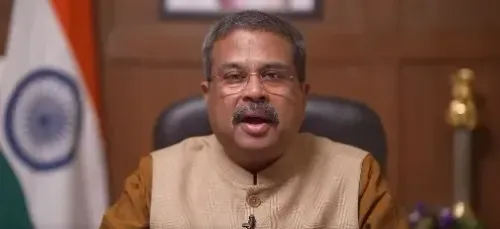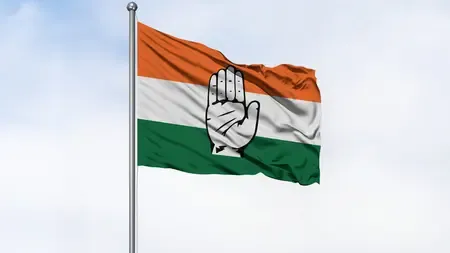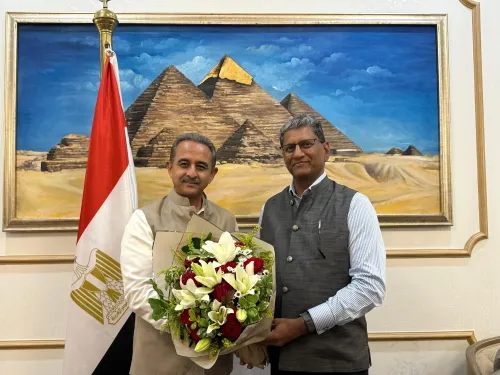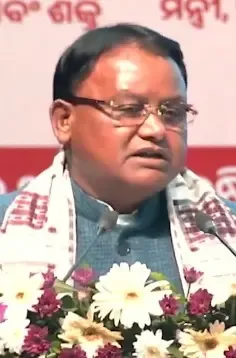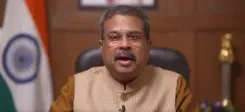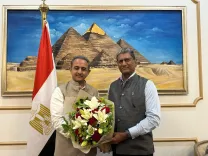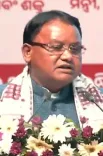Maharashtra's Farmers Set to Ignite a Second Green Revolution with Solar Energy: CM Fadnavis
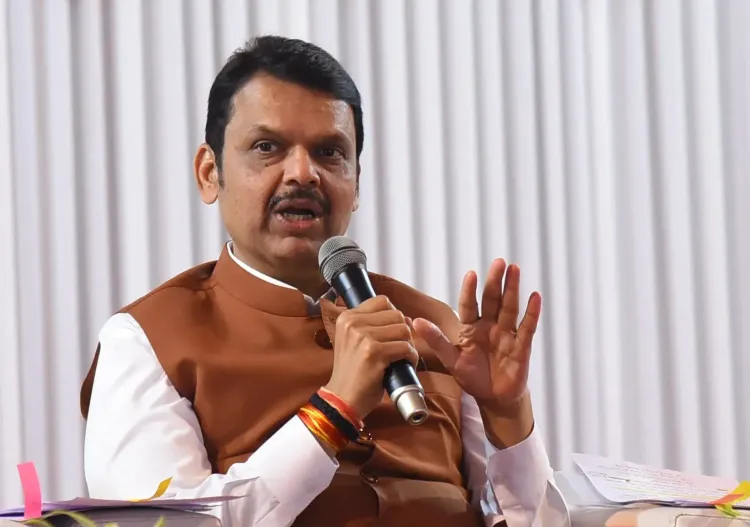
Mumbai, Dec 24 (NationPress) Maharashtra Chief Minister Devendra Fadnavis stated on Tuesday that solar villages powered by solar energy are being developed across the state, which will ensure that farmers receive electricity during the day. This initiative is poised to lead to a second green revolution through sustainable energy practices.
The Chief Minister made this announcement via video conferencing during the launch of solar projects in Umbartha within the Washim district and Narangwadi in the Dharashiv district, under the Mukhyamantri Saur Krishi Vahini Yojana 2.0 (MSKVY 2.0).
He mentioned that the Chief Minister Solar Agricultural Channel Scheme will provide farmers with sustainable and free electricity during the daytime.
This initiative will deliver 16,000 MW of power to the state's farmers, he added.
The process of transitioning all feeders to solar energy began two years ago, with a phased approach to ensure farmers can access electricity during the day, he explained.
The Maharashtra State Electricity Distribution Company (MahaVitran), which oversees the implementation of MSKVY 2.0, reported that out of the 29 million consumers in Maharashtra, approximately 4.5 million are agricultural consumers who account for 22 percent of the state's electricity usage.
Currently, power is supplied to agricultural consumers on a rotational basis during both day and nighttime, causing significant challenges for farmers who have long sought reliable daytime electricity.
Simultaneously, there is a pressing demand for industries and businesses in the state to receive electricity at competitive rates.
To address these challenges, the innovative Mukhyamantri Saur Krushi Vahini Yojana was initiated in June 2017, which plans to install decentralized solar projects ranging from 2 to 10 MW within a 5-km radius of agriculture-centric substations.
Recognizing the substantial benefits of solarizing agricultural feeders, the state government decided to revise the scheme after thorough discussions with stakeholders.
The revised initiative, now termed Mukhymantri Saur Krushi Vahini Yojana 2.0 (MSKVY 2.0), aims for a 30 percent solarization of feeders by 2025 under the 'Mission 2025', implementing 7,000 MW of decentralized solar projects swiftly. These projects will be installed with capacities ranging from 0.5 to 25 MW within 5-10 km of agriculture-focused distribution substations to ensure daytime power availability for farmers.

